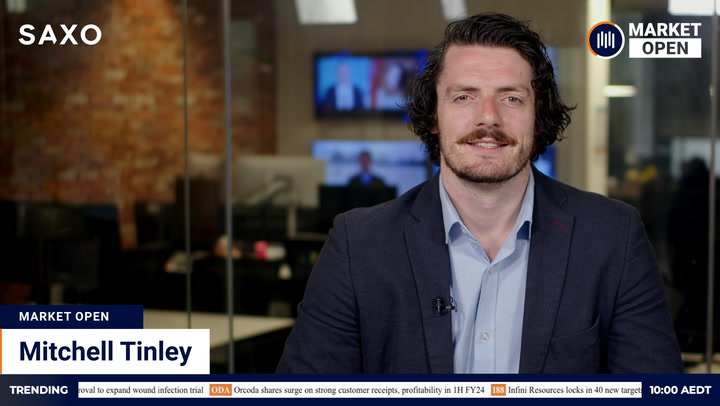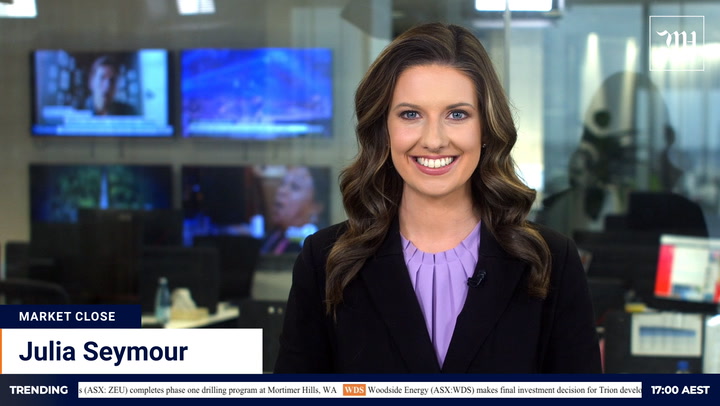The share market retreated after the Reserve Bank raised its benchmark rate and indicated further increases were likely.
The S&P/ASX 200 declined 34 points or 0.47 per cent to 7291.
Weak leads from Wall Street pushed the market underwater before a widely-anticipated afternoon rates decision. The market deepened its loss after the central bank raised the cash rate target by 25 basis points to 3.1 per cent.
Declines in mining and growth stocks outweighed slim gains in mostly defensive sectors following solid falls in the US overnight. .
What moved the market
Tentative hopes for a rates pause were dashed at 2.30 pm by the eighth interest rate hike of 2022. Official rates have risen from 0.1 per cent in April to 3.1 per cent in seven months. This year’s tightening cycle has been the fastest in decades.
The reason, according to the RBA, is simple: “Inflation in Australia is too high, at 6.9 per cent over the year to October,” Governor Philip Lowe said this afternoon.
The bank expects inflation to top out at an eye-watering 8 per cent before subsiding next year as supply chains return to normal and higher rates suppress demand. If all goes to plan, the bank expects consumer inflation to be a little above 3 per cent in 2024.
While the bank acknowledged a lag between raising rates and changes to consumer behaviour, it gave no indication it was ready to pause.
“The Board expects to increase interest rates further over the period ahead, but it is not on a pre-set course,” Lowe said in a statement accompanying the rates announcement.
“It is closely monitoring the global economy, household spending and wage and price-setting behaviour. The size and timing of future interest rate increases will continue to be determined by the incoming data and the Board’s assessment of the outlook for inflation and the labour market.”
The tone of the rates announcement suggests the long-awaited pause in hikes may be further off than the market previously expected, according to City Index senior market analyst Matt Simpson.
“A case for a pause has been building as some of the RBA’s own measures of inflation expectations have turned lower, and the monthly inflation print suggests CPI may have peaked at 7.4% y/y. Yet the statement doesn’t suggest we’re any closer to one – barring the fact that they do not meet again until February,” Simpson said.
“And with the RBA expecting inflation to continue higher and household spending remaining strong as ever, then the RBA may well hike by another 25bp in February and March before reassessing. And whilst the RBA have spoken of a pause publicly, we may not be as close to one as I originally thought.”
The rates outlook set the tone on Wall Street and commodity markets overnight as unexpectedly robust services-sector activity last month kept the pressure on the Federal Reserve to do more to rein in inflation.
The S&P 500 skidded 1.79 per cent as the market priced in a higher terminal rate. The Dow shed 1.4 per cent.
Winners’ circle
A six-month high in Newcastle coal prices helped coal miners resist broader pressures on commodity stocks. Prices at Newcastle firmed 2.43 per cent.
Whitehaven Coal climbed 2.72 per cent. Coronado added 2.56 per cent. New Hope gained 2.12 per cent.
The downturn in risk appetite helped lift defensive assets. Nufarm firmed 2.15 per cent, Medibank 1.74 per cent and a2 Milk 1.59 per cent.
Among the market behemoths of the ASX 20, Woodside advanced 0.93 per cent, Telstra 0.5 per cent and Coles 0.42 per cent.
Doghouse
Beach Energy slid 3.96 per cent after contractor Clough fell into administration. Clough was engineering, procurement and construction contractor for the Waitsia Stage 2 gas plant, a joint venture between Beach and Mitsui.
Bank of Queensland faded 0.42 per cent as Executive Chair Patrick Allaway defended the board’s decision to dump CEO George Frazis. Allaway told today’s AGM the bank required “a different capability and leadership style to build a simpler and more resilient bank”.
“We recognise the immediate departure of a CEO and the associated uncertainty is not ideal, but we felt a longer transition would not be in the best interest of BOQ. We considered it would be sub-optimal and destabilising for George to continue in the CEO role knowing he did not have the ongoing support of the Board while the search for his successor was underway,” Allaway said.
Gold miners had been among the best performers since September as the US dollar backed off a 20-year high. The yellow metal reeled back from a three-month high overnight as the greenback rebounded on revised expectations for the top in this interest rate cycle.
St Barbara gave up 8.76 per cent. West African Resources shed 8.4 per cent. Ramelius reversed 7.35 per cent. Industry heavyweight Newcrest lost 2.33 per cent.
Tech and other growth sectors declined in the wake of a jump in the cost of long-term borrowing. Afterpay’s US parent company Block fell 4.62 per cent, Novonix 8.85 per cent, Megaport 4.99 per cent and BrainChip 5.56 per cent.
Aside from Newcrest, the heaviest drags on the index were James Hardie -4.18 per cent, Macquarie Group -2.07 per cent and Fortescue Metals -1.57 per cent.
Other markets
A broadly negative session on Asian markets saw the Asia Dow lose 0.84 per cent, China’s Shanghai Composite 0.08 per cent and Hong Kong’s Hang Seng 0.93 per cent. Japan’s Nikkei index edged up 0.27 per cent.
S&P 500 futures firmed three points or almost 0.1 per cent.
Gold clawed back US$4.30 or 0.24 per cent of last night’s US$28.30 loss, rising to US$1,785.60 an ounce.
Brent crude rebounded 38 US cents or 0.46 per cent to US$83.06 a barrel.
The dollar bounced 0.33 per cent to 67.29 US cents after sliding more than 1.7 per cent overnight.






